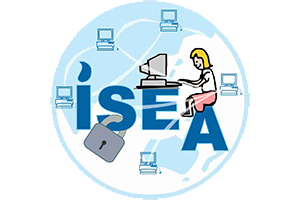Operating System is the important program that runs on the computer. It performs basic tasks like recognizing the input from the keyboard, controlling various files and directories in the hard disk and also various peripheral devices like printers, scanners etc...It will control the program in such a way that they do not interfere with one another.It is responsible for securing the system by not allowing the unauthorized users to access the system.
Need for securing the Operating System
The security of the operating system running on various PCs plays an important role in the security of the network as a whole. Not updating one system in the network may affect the security of the other systems in the network. Today we have a highly sophisticated operating system with lots of features, but it may be vulnerable if they are not administered, configured and monitored properly. Sometimes updating the operating system with latest patches may lead to interoperability issues with other operating systems. Hence proper care should be taken while updating the operating system.
Guidelines for securing the Operating System
Whether you’re using your computer at home or travelling with your notebook PC, the following are basic guidelines for securing System.
Update OS
It is important to install latest patches that are available for operating system. You need to update them regularly to prevent malware coming into your computer.Enable automatic updates for your OS or you can also update manually going to website like microsoft and check for your OS updates that are available .
Install an antivirus product and keep up to date
Viruses, worms and other malware are some of the most prolific problems on the internet today.But the same time, there are some good antivirus applications that provide a great deal more protection than just searching for viruses. However, any antivirus product is only as good as you are about keeping it up-to-date and scanning your system regularly.
Guidelines for securing the Operating System
Whether you’re using your computer at home or travelling with your notebook PC, the following are basic guidelines for securing System.
Update OS
It is important to install latest patches that are available for operating system. You need to update them regularly to prevent malware coming into your computer.Enable automatic updates for your OS or you can also update manually going to website like microsoft and check for your OS updates that are available .
Install an antivirus product and keep up to date
Viruses, worms and other malware are some of the most prolific problems on the internet today.But the same time, there are some good antivirus applications that provide a great deal more protection than just searching for viruses. However, any antivirus product is only as good as you are about keeping it up-to-date and scanning your system regularly.
Enable Computer Firewall
Like antivirus products, Firewall products are designed to protect your system from Internet threats like hackers, viruses, and worms by filtering out any suspicious communications sent to your computer.
Use Strong Passwords
Passwords control access to files, programs, computers, hard drives and networks. They also deny access to unauthorized users. Poorly chosen passwords make it easier to break into your computer systems and expose to malicious attacks. In general, set up passwords and keep them secret never share it with others.

